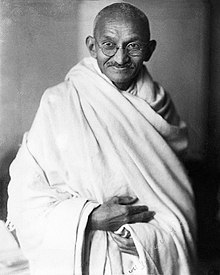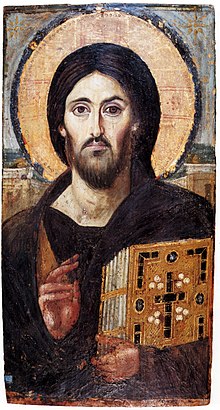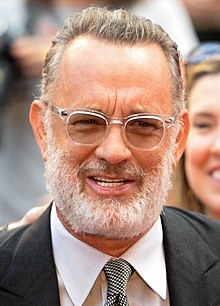Portal:Religion
Appearance
The Religion Portal
Religion is a range of social-cultural systems, including designated behaviors and practices, morals, beliefs, worldviews, texts, sanctified places, prophecies, ethics, or organizations, that generally relate humanity to supernatural, transcendental, and spiritual elements—although there is no scholarly consensus over what precisely constitutes a religion. Different religions may or may not contain various elements ranging from the divine, sacredness, faith, and a supernatural being or beings. (Full article...)
 Vital article
Vital article
Vital articles to understand Religion.

 Did you know (auto-generated)
Did you know (auto-generated)
Did you know it about Religion?
- ... that Gherardo Gambelli, the incoming archbishop of Florence, served as a prison chaplain in Chad for over a decade?
- ... that Gamaliel's principle has been used to support religious pluralism and reforms within religious groups?
- ... that fictional religions, often described in speculative fiction, have in some cases inspired real religious movements?
- ... that in her 2021 book White Evangelical Racism, professor of religion Anthea Butler called American evangelicalism a pro-Trump, "nationalistic political movement"?
- ... that Catherine de Parthenay, a 16th-century Huguenot leader, was a member of "a highly successful network of information" during the French Wars of Religion?
- ... that across his thirty-six collections, fashion designer Alexander McQueen contemplated religion, told fairy tales, and criticized the fashion industry?
Featured articles in Religion.
Thomas Cranmer (2 July 1489 – 21 March 1556) was a British religious figure who was leader of the English Reformation and Archbishop of Canterbury during the reigns of Henry VIII, Edward VI and, for a short time, Mary I. He helped build the case for the annulment of Henry's marriage to Catherine of Aragon, which was one of the causes of the separation of the English Church from union with the Holy See. Along with Thomas Cromwell, he supported the principle of royal supremacy, in which the king was considered sovereign over the Church within his realm. (Full article...)
Top 10 WikiProject Religion Popular articles of the month
This following Religion-related articles is a most visited articles of WikiProject Religion, See complete list at Wikipedia:WikiProject Religion/Popular pages.
 Subcategories
Subcategories
Select [►] to view subcategories
Topics
Select [show] to view subtopics
 Get involved
Get involved
For editor resources and to collaborate with other editors on improving Wikipedia's Religion-related articles, visit WikiProject Religion.
Discover Wikipedia using portals































































